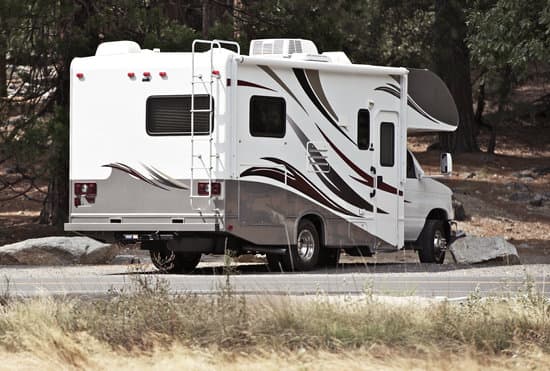The length of an RV power wire is the subject of this blog entry. When it comes to RVing, there are a number of essential items to have in your car. The power cord is one of the most crucial pieces of RV equipment. You wouldn’t be able to run critical appliances, turn on lights, or, most significantly, enjoy air conditioning without it. Taking care of these minor items enriches your RV vacation and makes it even more pleasurable!
What is the length of a power wire for an RV? RV power cords come in three different sizes: 15-amp, 30-amp, and 50-amp. They’re common on RVs with lengths ranging from 25 to 50 feet.
The majority of RV power cords that come with contemporary RVs are around 20 feet long at the very least. In most situations, the power cable that comes with your RV should be plenty, but have a little extension handy just in case. There will be times when your RV is a long distance from a power source and you will need to use an extension cord.
Continue reading this post to learn everything you need to know about RV power cables. Understanding your RV’s electrical requirements will help you enjoy a safer trip and get the most out of it.
When it comes to power cables, there isn’t always a one-size-fits-all solution. Longer cables and extensions are available, however the bulk of 30 amp power cords are around 30 feet long.
When used in conjunction with the power chord that came with your RV, you should be able to fulfil the majority of camping hook-up requirements. There will be times when you require more than 50 feet of cable. Consider utilising a 30 amp extension cord if you suspect this is the case.
If your RV requires more than 50 feet of electricity, you may get an extender cable or two with numerous plugs and outlets on one end that can bridge the gap between where you wish to plug in or detach with just one extension cord.
Most RVers shouldn’t have any issues with power chord length as long as they have the proper size extension cords and cables to bridge any gaps between where you plug in or detach from your campsite’s electrical supply and your vehicle. Keep this information in mind when you plan for a future trip so you don’t waste time while on vacation.
What length can a 50-amp cord last? RV Cords measure 25 feet in length. The 50 amp rating will not be exceeded if the cord is used with an RV. There’s always another! If the code is not met, problems may occur.
What distance can you run a 30-amp cord to a camper? No maximum is allowed as long as the cord is rated at 30 Amps. It is not about how many feet, but how many cords. Two 50-foot extension cords at 30 Amps are equal to a 100-ft cord.
What length extension cord should I use for my project? We recommend using a 10 gauge extension cord for RVs that require 15A power. This cord is durable, thick, and can be run for any length. We recommend that you use a minimum of a 12 gauge extension cable.
How long is an RV power cord?
- You can hook up to your home’s standard outlets by using an all-weather extension cable and a 15/20 Amp adapter.
- You want your extension cord to be as long as possible when it goes from your house to your RV. This will prevent it overheating.
Is it okay to leave your RV connected all the time?
You should not leave your RV battery unattended, even if it is fully charged. This can lead to electrolyte loss.
If you don’t have an RV converter that has a three- or four-stage charging process, or if you attach a battery tender, this can reduce battery life.
Can I plug my 50-amp dryer into my dryer outlet?
You can’t plug an RV directly into your home, but you can exception to this rule. Class A motorhomes are limited to 50 amps. These RVs will require 240 volts of electricity.
Which extension cord is more durable, 10 gauge or 12, gauge?
- For your equipment to get enough power, size the extension cord according to the distance it will be used and the amps your equipment requires (found on the cord).
- For 100-foot extension cords, you will need a: 12 gauge for 14-15 amps.
- 10 Gauge for 16-20 Amps.
Can my travel trailer be plugged into my house?
It is not recommended that you plug your RV into the house’s power source for long-distance trips. However, it can be done for a brief time. To do this, most RVs will need at least a 30/50 amp or a 15/20amp electrical outlet.
Can a camper’s AC be run on 110
110 amps will usually give you approximately 15 amps. An average RV air conditioner requires 13.5 amps to operate. You can cool your RV while you go inside to get something, but you can’t run a microwave or coffee maker, or any other appliance.
What type of extension cord is required for a 30 amp circuit?
Camco Heavy Duty RV/Electric Car Extension Cord, with Power Grip Handles (30 Amp, 50 Feet, 10-Gauge), is designed to give you the length you need to charge your RV from distant power outlets.
Can a 30amp plug be used in 220v?
- A 30-amp RV service is 120-volt and includes a 3-prong receptacle and a single 30-amp dedicated fuse.
- The standard ANSI C73 30 AMP is the 30 AMP.
13, TT-30P / 13 TT-30R (receptacle) - Many people mistakenly believe that the TT-30 plug is wired for 240-volt. However, it is a 120-volt device.
What cord size do I need to run 30 amps?
- 10 cord size
- You will need a wire gauge of 10 to allow for a maximum of 30 amps. A central air conditioner is the most common household item that requires a 30 amp circuit.
Can I plug my 220v cable into a 220v outlet?
Outlets that are capable of delivering 220v should not directly be used for RV applications. The RV system needs 120 volts. The RV’s electrical system can be damaged or destroyed by 220 volts.
How can I get cable television in my house?
An RV can receive a TV signal via satellite, cable, or antenna. Depending on their travel schedules and financial resources, many RVers choose to use a combination of all three. 11. September 2017
How can I protect my extension cord?
- It will protect your extension cord plugs from moisture and heat by keeping them inside.
- You don’t have to keep it in an extremely tight container.
Method 2 - Use a high-quality plastic bag.
- You can cover the entire extension cord and wire.
- Make a lot and place them in the place you prefer.
Do I need to disconnect my battery from the charger?
Your batteries will discharge slower if the disconnect is turned off while you are storing your camper. This will prevent your batteries from charging even when the rig is connected to shore power.
Do I need to disconnect my battery before storing it?
When you’re not using your RV, the only time the Battery Disconnect Switch should be in “batteries off” mode is when it’s being stored. You can also keep your RV plugged into during storage to prevent the converter/charger from charging your house batteries too much.
Is it really necessary to have surge protection for your computer?
Yes, your RV will need a surge protector. You can be exposed to many electrical hazards, including power surges and low voltage issues that could cause serious damage to your RV’s electrical system. You can immediately make a smart investment in a surge protector for RVs.
What is the difference between a plug 110 and 220 for 50 amps?
If there are four prongs on each male and female plug, a 50 amp RV plug will be 220 Volts. Two prongs are 110 Volt to neutral, or ground. One prong is the neutral and the other the ground. The voltage between the prongs is 110 Volt should be 220 Volts.
How much does it cost for a 50 amp RV plug to be installed?
- There are many factors that affect a 50 amp service, the main being the length of the run.
- Figure $3-$4/foot wire (anywhere in U.
- $60 for the outlet/service box to plug in to; $50-$100 to the breaker at panel & misc.






